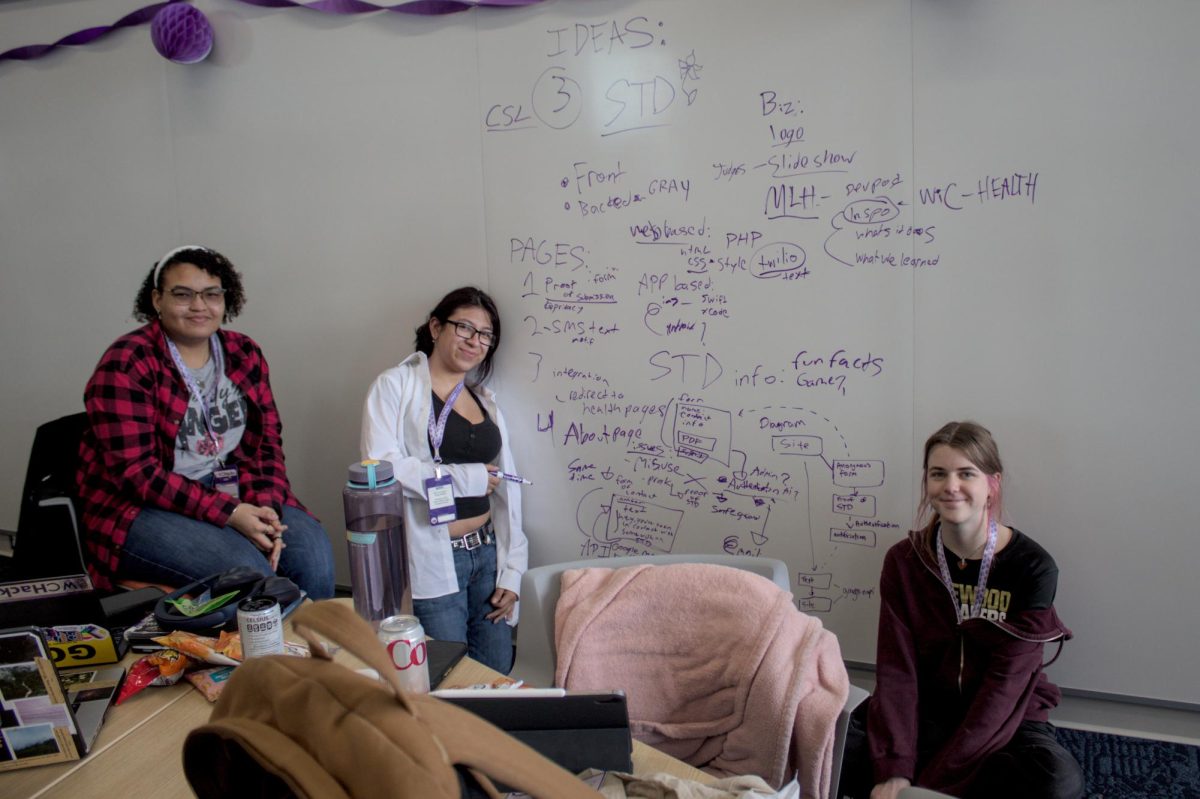Hackathons like WiCHacks, BrickHack, HACK.COMS and a myriad of others hosted by smaller groups are common at RIT. But what exactly is a hackathon, and what is its purpose?
According to Darwin Tran, a third year cybersecurity major who is the WiCHacks logistics director, hackathons are a place for people to dedicate 24 hours to make typically tech-related projects. WiCHacks organizes the hackathon for Women in Computing (WiC), which has hosted the event for the past 11 years. Tran sees hackathons as a benefit to programmers in the field.
“Hackathons are a really great opportunity for people to actually take some time out of their busy schedule, being here at college, to be able to sit down and actually do a project because even though it’s 24 hours, it does give you time to work on something for essentially a day. A lot of people use the opportunity to put those projects on their resume, and it’s really a great way to talk with [recruiters] and potentially get a job, or buff up your resume or just a space for you to be creative with other people.”
Hackathons often have prompts from the hosts and potentially sponsors. They are often organized into different categories. Participants can work solo or in small teams to solve the problem to the best of their ability within 24 hours. After the timer ends, they can pitch their design in person and/or submit their work through a website like Devpost or through photos.
While hackers can work on any project they choose, for some, such as second year humanities, computing, and design major Charlotte George, host prompts can provide inspiration for projects.
“I looked through the different categories for inspiration as to a project and I saw the category for best use of AI in education, and I started thinking of some different ways that it would be useful to help students do better in school and I know that for me personally, I sometimes struggle with studying and figuring out study habits, and with practicing for tests and stuff, so I thought that would be a pretty cool problem to tackle by making this,” George said.
Eva Witten, a first year cybersecurity major, has participated in a handful of hackathons, having first joined one in high school. She was initially surprised that the hackathon did not involve hacking, but she still relished participating in these events.
“I thought it was really fun; I learned a lot. I got closer to friends and made new friends, and I absolutely love doing them,” Witten said.
Witten enjoys having a dedicated amount of time and purpose set aside just for learning. She also loves the feeling of being satisfied with the final product.
“A hackathon can really be whatever you want it to be, and all that really matters is that you have a goal in mind and that you sit down and work to achieve that goal, even if you don’t fully achieve it by the end of the hack,” Witten described.
While George didn’t finish her project from her first hackathon, she continues to work on it. She found working in a team to be beneficial to her experience at the hackathon, stating,“We were able to split the workload and be more efficient in certain ways, which felt good.”
While it may feel difficult to get involved in hackathons like WiCHacks, participating in one is a unique experience that emboldens programmers and inspires them to keep learning.







